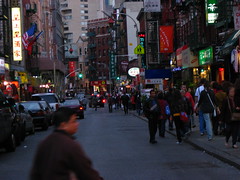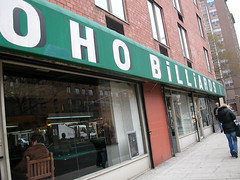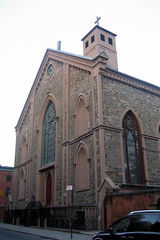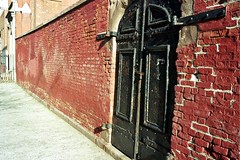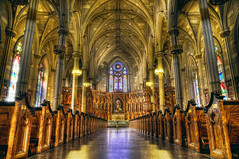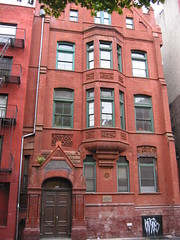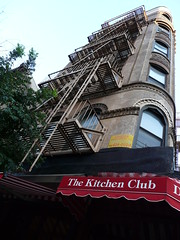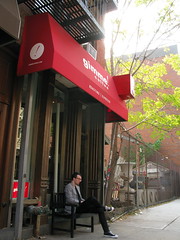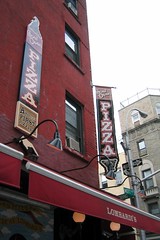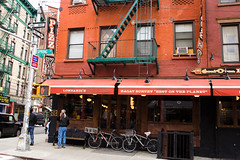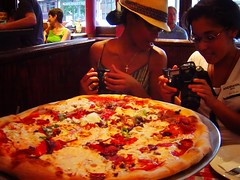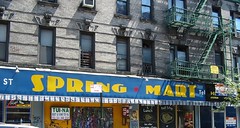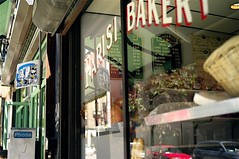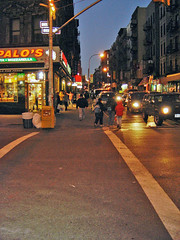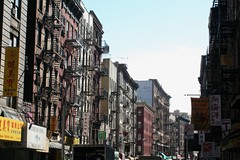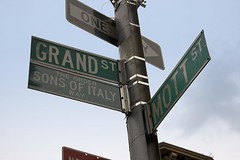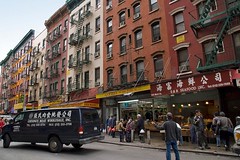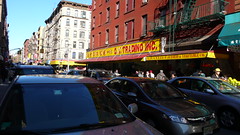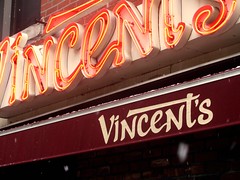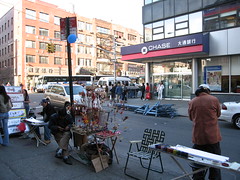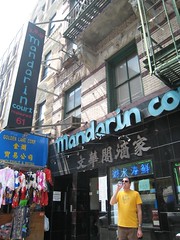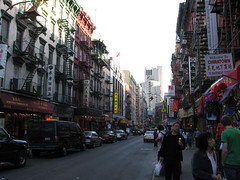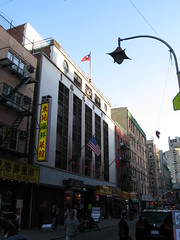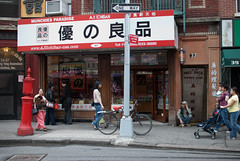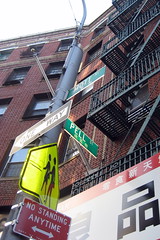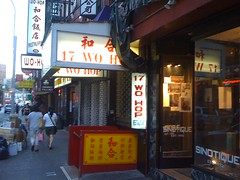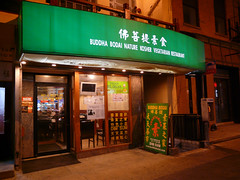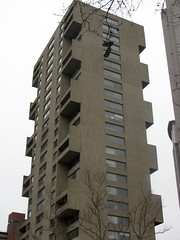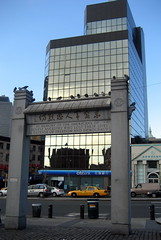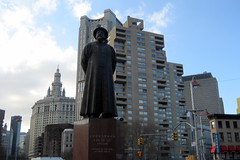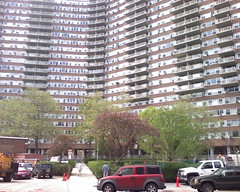|
38 (corner): New Age Designer, custom-made cheung-sum
-- traditional Chinese dresses. In 1903
was
Quong Yee Wo & Co.
36: Pearl of the Orient Gallery, Chinese art.
Tom ''Fatty''
Walsh, a political rival of Tammany Hall's
Boss Tweed, lived at this address. Born here
in 1873 was his daughter Blanche Walsh,
who became a leading actress around the turn of
the 20th Century.
34: In 1873, a merchant named Wo Kee opened a
store at this address, with a benevolent society and a
dormitory also on the premises. It's considered to
be the start of the Chinatown business district.
32: Quong Yuen Shing & Co.
general store was in business from 1891 until October 2003--a victim
of the economic downturn that hit Chinatown after
September 11, 2001. Now Good Fortune Gifts, Inc.
30: Silkroad Place, coffeehouse
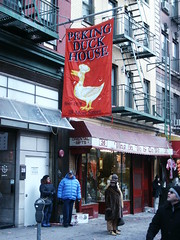
28: Peking Duck House; the namesake
dish is the best food on Mott Street,
according to Zagat.
26: Wing On Wo & Co Oriental Gifts
24: Panda Ma clothing
22: Ping Seafood Restaurant, where your
meal was swimming around just minutes ago. The
building is labeled the
Chinese Masonic Building
near the cornice.
20: Was Sweet-N-Tart Restaurant,
another branch of the Chinese snack-food
cafe. The 1820 Federal-style townhouse has been
dismantled and replaced with a modern building.
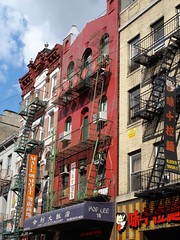
18: Mall on Mott (aka Elite
Health Products) is at the original address
of the On Leong Tong's New York branch, opened in 1883.
16: What is now the Hop Lee Restaurant
was the
original headquarters of the
Chinese Consolidated Benevolent Association,
which by the late 1880s
 included China- town's
main ''joss house,'' or Taoist shrine; the basement
was a gambling den.
included China- town's
main ''joss house,'' or Taoist shrine; the basement
was a gambling den.
14: Ajisen Noodle, a Japanese-style ramen house.
In 1879, the Methodist Five Points Mission
opened a short-lived effort to convert Chinese
immigrants here.
10 1/2: Bangkok Gift & Souvenir is at
the address of the Hope Hose Company,
a pre-Civil War volunteer fire brigade.

8: Was China- town Fair, a veri- table
video- game museum. Formerly home to the
Tic-Tac-Toe playing chicken, who had been
retired to a farm before the place closed. By 1883, pioneering
Chinese merchant Wo Kee had bought this
address and moved his store here, one of the
first properties in Chinatown to be owned
by a Chinese immigrant.
4: Tom Lee, who ran a cigar store here,
became a New York deputy sheriff and founded
Chinatown's first tong, the Lung Ye.
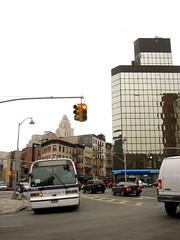
2 (corner):
Wing Ming Building,
a mirror-surfaced 11-story office tower,
built 1978 by a Hong Kong businessman.
Houses medical professionals.
| 
